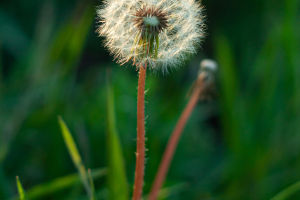In the spring breeze, a charming fragrance often blooms in the garden – that fragrance belongs to the hyacinth.
This beautiful flower is not only known for its colorful hues and unique fragrance but also for its legendary name.
The Origin of Hyacinth
The name "hyacinth" finds its roots in Greek mythology. Legend has it that Hyacinthus was a Greek teenager gifted in both sports and music. However, his life met a tragic end due to an unfortunate accident.
It is said that Hyacinthus and Apollo were engaged in practicing discus throwing when, tragically, a discus struck Hyacinthus on the head, knocking him to the ground. As he fell, his blood spilled onto the earth, giving rise to a stunning flower – the hyacinth.
According to the tale, in a bid to honor Hyacinthus, Apollo transformed his blood into a flower, naming it after him to express his profound longing and nostalgia. Hence, the hyacinth is also referred to as the "Flower of Hyacinthus," symbolizing eternal beauty and love.
The Flower Language of Hyacinth
Hyacinth is not only celebrated for its captivating appearance and poignant legends but also for its rich symbolism in the language of flowers. In this floral language, the hyacinth signifies "fickleness."
This is owing to the transient nature of its blooms – while stunning when in full bloom, they gradually fade over time, reminding us of the ephemeral and transient nature of life.
The Flowering Period of Hyacinth
Hyacinth, a spring-flowering plant, typically blooms from March to May. Across many regions of the northern hemisphere, one can revel in the splendor of hyacinth blooms adorning spring gardens.
The bell-shaped flowers come in an array of colors – white, pink, purple, blue, and more – each exuding its unique allure.
Beyond garden beds, hyacinths often find their place as adornments in floral arrangements and bouquets, infusing spaces with the freshness and vitality of spring. Their intoxicating fragrance renders them a prized ingredient in numerous perfumes and fragrance products.
Conclusion
As a beautiful and enigmatic flower, the hyacinth captivates admirers with its enchanting symbolism and legendary origins. Its springtime blooming period transforms gardens into ethereal landscapes.
The name "hyacinth" carries echoes of ancient myths and profound emotions, inviting contemplation on the essence of life and the beauty of emotions. May the fragrance of hyacinth endure, bringing warmth and hope to the world.


